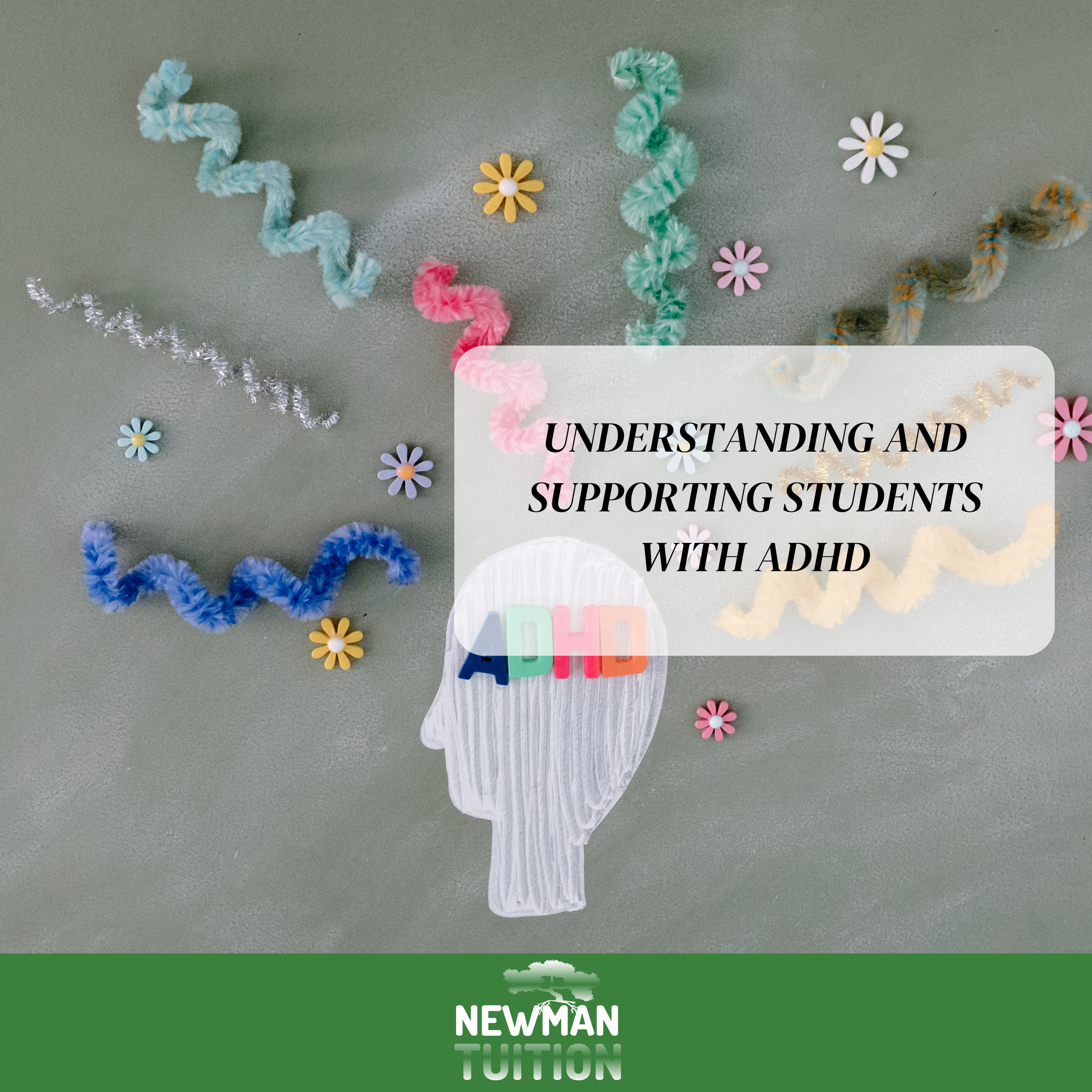Understanding and Supporting Students with ADHD

Attention Deficit Hyperactivity Disorder (ADHD) is one of the most common neurodevelopmental conditions among children and young people. It affects focus, self-control, and other important skills that influence daily life and learning. For students with ADHD, the classroom can sometimes feel overwhelming, and their unique ways of processing information may be misunderstood. With the right understanding and support, however, these students can thrive academically and personally.
What is ADHD?
ADHD is characterised by patterns of inattention, hyperactivity, and impulsivity. Not every student with ADHD will present in the same way:
- Inattentive presentation: difficulties with focus, organisation, and following instructions.
- Hyperactive/impulsive presentation: restlessness, constant movement, and impulsive behaviour.
- Combined presentation: a mixture of both inattentive and hyperactive/impulsive traits.
It’s important to recognise that ADHD is not a lack of intelligence or capability. Many students with ADHD are highly creative, energetic, and able to think outside the box.
Challenges Students May Face
Students with ADHD often experience:
- Struggles with maintaining concentration during lessons or while completing homework.
- Difficulty with organisation, time management, and remembering instructions.
- Frustration or low self-esteem if their learning needs aren’t understood.
- Sensitivity to distractions, both in the classroom and at home.
These challenges can impact academic progress as well as social confidence.
How Parents and Tutors Can Help
The right support can make a significant difference in a student’s educational journey. Some effective strategies include:
- Structure and Routine
Predictable routines and clear expectations provide stability. Breaking tasks into manageable steps can reduce overwhelm.- Positive Reinforcement
Encouraging effort and progress, rather than focusing solely on outcomes, can help build self-confidence.- Active Learning Techniques
Using interactive and hands-on approaches, such as flashcards, movement-based learning, or creative problem-solving, can help sustain engagement.- Minimising Distractions
A calm and organised environment supports concentration. Tutors may find that shorter, focused sessions are more effective than long study blocks.- Encouraging Self-Advocacy
Helping students recognise their strengths and challenges enables them to communicate their needs effectively in school and beyond.The Role of Tuition
One-to-one tuition offers a personalised approach that can be particularly beneficial for students with ADHD. Tutors are able to adapt their teaching methods, pace, and materials to match the student’s learning style. At Newman Tuition, we carefully match each student with a tutor who understands their individual needs, ensuring that learning is not only productive but also enjoyable.
Students with ADHD have enormous potential. With understanding, patience, and tailored support, they can flourish academically and develop lifelong skills for success. Parents, teachers, and tutors working together can help create a supportive environment where these students feel valued and empowered.